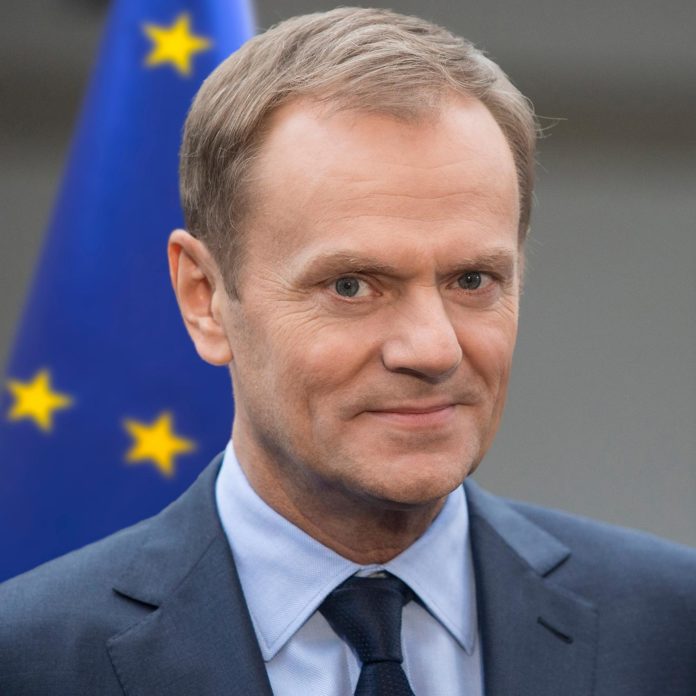BRUSSELS (RFE/RL) — The European Union welcomes the Armenian government’s ambitious reform agenda and is ready to support it with greater aid, European Council President Donald Tusk said after meeting with Prime Minister Nikol Pashinyan in Brussels on Tuesday, March 5.
“I admire your resolve to bring about democratic reforms and economic development which will benefit all Armenians,” Tusk told Pashinyan at a joint news briefing. “The EU will continue to support Armenia’s journey towards becoming a consolidated democracy and creating a better economic future for its citizens.”
“The EU is ready to further support your reform process with enhanced technical and financial assistance,” he said. “We agree with your strong emphasis on the fight against corruption and the rule of law reform.”
Johannes Hahn, the EU commissioner for European neighborhood and enlargement negotiations, said in Yerevan in late January that the EU will provide Yerevan with additional financial assistance already this year in recognition of democratic change in the country. Hahn singled out the proper conduct of the Armenian parliamentary elections held in December.
Neither Hahn nor Tusk specified in their public statements the likely amount of the extra EU aid promised by them.
Visiting Brussels in July, Pashinyan criticized the EU for not boosting its assistance to Armenia following the “velvet revolution” that brought him to power. A senior EU diplomat dismissed the criticism at the time.










